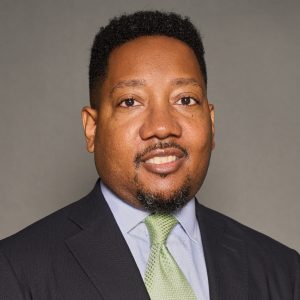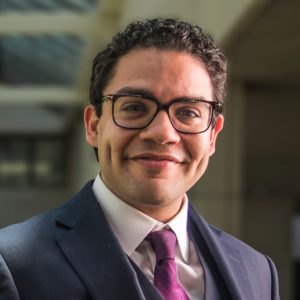Writer: Ryan Gandolfo
 5 min read April 2024 — Opportunities to create better health outcomes for patients oftentimes stem from collaboration and partnerships across stakeholders. From broadening awareness of the health disparities that exist in the community to delivering care within a wide range of specialties and programs, organizations in Nashville have a multifaceted approach to healthcare.
5 min read April 2024 — Opportunities to create better health outcomes for patients oftentimes stem from collaboration and partnerships across stakeholders. From broadening awareness of the health disparities that exist in the community to delivering care within a wide range of specialties and programs, organizations in Nashville have a multifaceted approach to healthcare.
NashvilleHealth, an initiative to better understand the health inequities that exist in the community, has worked with the Metro Public Health Department to emphasize the higher prevalence of debilitating health conditions in Nashville’s Hispanic and African American populations. According to the Nashville Community Health and Well-being Survey, African American adults are twice as likely to be diagnosed with diabetes compared to the general population, while Hispanic males are 12 times more likely to experience discrimination while seeking medical attention than white, non-Hispanic males.
Mark Yancy, CEO of NashvilleHealth, and Fahad Tahir, president and CEO at Ascension Saint Thomas, shared how they are highlighting community wellness issues and expanding healthcare access to the wider community.
What impact has your organization had in the region over the past year?
 Mark Yancy: We’ve partnered with the metro government, the mayor’s office, the Nashville Area Chamber of Commerce, and the health department, and created the Nashville Wellness Collaborative. Our focus is on the working class, nurses, teachers, servers, workers, housekeepers, the people who are essential but often unseen.
Mark Yancy: We’ve partnered with the metro government, the mayor’s office, the Nashville Area Chamber of Commerce, and the health department, and created the Nashville Wellness Collaborative. Our focus is on the working class, nurses, teachers, servers, workers, housekeepers, the people who are essential but often unseen.
Our role is to highlight community wellness issues, both physical and mental, which are indicators of our workforce’s health. This is crucial for companies seeking to expand or relocate to decide between Nashville and another peer city, such as Austin. Health indices can influence their decision based on potential insurance premiums and workforce reliability. We represent the link between health and a sustainable workforce, and we’ve been successful, as evidenced by our partnerships with the mayor’s office, the metro government, the health department, the chamber, and the collaborative.
 Fahad Tahir: We are focused on bringing healthcare access closer to home for each of the communities we serve, addressing those access needs, and keeping up with the growth of the region. Ascension Saint Thomas has a broad health system comprising urban/suburban hospitals, specialty hospitals and rural hospitals. Our broad spectrum of 300 plus care centers offering imaging, surgery and physician services to serve the community have been systematic and purposeful about finding additional channels to increase access to care. Sometimes those channels are natural expansions of Ascension Saint Thomas beyond the region where we have historically been. As part of that, we conduct community needs assessment to identify access to care gaps so that we can find and serve those communities.
Fahad Tahir: We are focused on bringing healthcare access closer to home for each of the communities we serve, addressing those access needs, and keeping up with the growth of the region. Ascension Saint Thomas has a broad health system comprising urban/suburban hospitals, specialty hospitals and rural hospitals. Our broad spectrum of 300 plus care centers offering imaging, surgery and physician services to serve the community have been systematic and purposeful about finding additional channels to increase access to care. Sometimes those channels are natural expansions of Ascension Saint Thomas beyond the region where we have historically been. As part of that, we conduct community needs assessment to identify access to care gaps so that we can find and serve those communities.
Other channels include building partnerships with like-minded organizations that have a similar character and values to us. We look at ways to align structurally, financially, and economically, but also make sure that those potential partners want to serve patients and address gaps. For instance, we are excited about our partnership with Lifepoint Health, which has allowed us to form Highpoint Health and expand our reach in specific communities and bring access to care closer to patients’ homes.
We also have developed partnerships beyond the healthcare space. For example, we are partnering with Nashville Yards, which is the largest urban downtown Nashville development and we are excited to bring access to care to that development. Moreover, we are the healthcare partner for the Tennessee Titans, which allows us to use our shared brands to increase education and awareness of public health issues. We are also working on a unique, consumer-focused health retail space in Harding Town Center in West Nashville adjacent to our West hospital campus. It is a novel and thoughtful way to incorporate health and wellness into retail to create a healthy village concept for the community.
How do you address health issues in the community, and what initiatives do you implement?
Yancy: Let’s take hypertension in ZIP code 37208 as an example, where about 45% of residents have high blood pressure. Our approach involves forming clinical and non-clinical partnerships. For instance, we might partner a clinic or a Federally Qualified Health Center like Matthew Walker Comprehensive Health Center with various organizations already doing great work in addressing nonmedical determinants of health such as food and nutrition or transit and mobility. We focus these combined efforts on the specific area with increased rates of chronic illness.
The importance of this strategy is underscored by the data we’ve collected and made available online. Areas with chronic health issues often coincide with food deserts, low vehicle ownership, and limited access to green spaces and physical activity. Conversely, areas with better access to these resources have fewer health disparities.
By creating partnerships, we address gaps in these communities. For example, if a resident is advised by their care team to eat healthier and exercise more, but they live in a food desert without a car, it’s a challenge. That’s where organizations like the The Nashville Food Project and Transit Alliance of Middle Tennessee come in, providing support that helps to mitigate these everyday challenges to wellness that occur away from a clinic or care provider.
Our initiatives go beyond immediate health concerns; they aim to create a sustainable solution encompassing food networks, transportation, and workforce development. This holistic approach is appealing to entities like the chamber because transforming a chronically ill area into a healthier one benefits the entire economy. If residents are healthier, they’re more likely to contribute to the workforce, especially if they have access to necessary resources like healthcare and grocery stores.
In essence, we use health as a pathway to develop a robust, healthy community and workforce, particularly in areas critical to the city’s success. By investing in these areas, we’re not just improving health outcomes; we’re also bolstering the economic vitality of the community.
Tahir: As a not-for-profit, faith-based health system, Ascension Saint Thomas sees itself as a driver and catalyst to create health access. We want to ensure that patients have a fair, equitable, appropriate, and affordable access to care close to their homes. One of the key challenges to that is Tennessee being one of only 10 states that did not expand Medicaid, which has resulted in health inequities, such as 300,000 residents lacking access to affordable care. We hope to continue advocating within the business and healthcare communities to achieve a Medicaid expansion that evens out some of those gaps.
Besides that, it is important to underline that the health status of an individual or family is not limited to the healthcare services that are available. It also pertains to factors such as how people live and eat and the walkability and air quality of neighborhoods, among other factors. We all have a responsibility to the environmental stewardship of the city and region as that allows people to have a healthier community. Additionally, if we do not have a healthy and productive workforce because we do not have healthy citizens, that reflects negatively on the effectiveness of the workforce and the health of the economy. Policies impact health status, and health status impacts our city and state’s economic output and productivity.
What are your main priorities and goals for NashvilleHealth in the next two to three years?
Yancy: One of our main priorities is the development of a Wellness Opportunity Zone in North Nashville. This concept is akin to a tourism development zone where seed funding is used to jumpstart economic development in a particular area. In our case, the seed funding will initiate wellness-focused program development, which we want to leverage to attract further investments into various aspects of wellness, such as education, parks, better access, and food and nutrition options.
The goal is to transform the community into health-promoting areas instead of health-limiting areas. We believe that creating such environments will have substantial benefits to workforce development and community growth.
On February 22nd, we held a press conference with Mayor O’Connell to launch the first Wellness Opportunity Zone in Nashville, focusing on the 37208 area. This initiative is a pilot template that we hope serves as a precedent for similar developments in other parts of the city. Our goal is to establish an ethos of well-being and collective impact on health. As Nashville grows rapidly, embedding this ethos into its development could significantly differentiate our city and drive us towards an even bigger economy that grows even faster. We aspire to create a city where well-being is a core part of its growth and identity.
What does Nashville need to become a global healthcare hub?
Tahir: Whether it is a city, an organization, or an individual, we must always recognize that there is more that we can do to get there. As a committed member of the Nashville Health Care Council, we constantly seek to develop and demonstrate ways to expand our reach locally, regionally, nationally, and globally as a healthcare destination. We have the mindset that, as the country thinks about the best way to deliver healthcare, where the innovation happens, and who the best operators are, they think about Nashville.
Considering the unique footprint of the U.S. healthcare system in the world in terms of innovation, delivery, and optimization of the size and capabilities of our companies, being the best in the country also means being the best in the world. Nashville Health Care Council is committed to being a recognized leader, which is where those ripple effects begin.
For more information visit:
